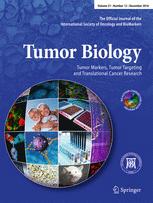 A company that indexes journals — thereby assigning them impact factors — has chosen to delist a cancer journal after it retracted 107 papers earlier this year for faked peer reviews.
A company that indexes journals — thereby assigning them impact factors — has chosen to delist a cancer journal after it retracted 107 papers earlier this year for faked peer reviews.
Starting July 19, anything published by Tumor Biology will not be indexed in Web of Science, part of Clarivate Analytics (formerly part of Thomson Reuters). Clarivate told us the decision was based on the fake reviews that took down more than 100 papers earlier this year. The problematic papers were released while the journal was published by Springer, not its current publisher, SAGE.
Without being indexed by Web of Science, Tumor Biology will lack an impact factor — which can be the kiss of death for many journals, since researchers (and institutions) often count on such metrics when applying for grants and promotions, so many will not submit work to a journal without one.
Here’s the statement from a Clarivate spokesperson [their emphasis]:
Continue reading When a journal retracts 107 papers for fake reviews, it pays a price
 In a massive cleanup, Springer and BioMed Central announced today they are retracting 58 papers for several reasons, including manipulation of the peer-review process and inappropriately allocating authorship.
In a massive cleanup, Springer and BioMed Central announced today they are retracting 58 papers for several reasons, including manipulation of the peer-review process and inappropriately allocating authorship.

